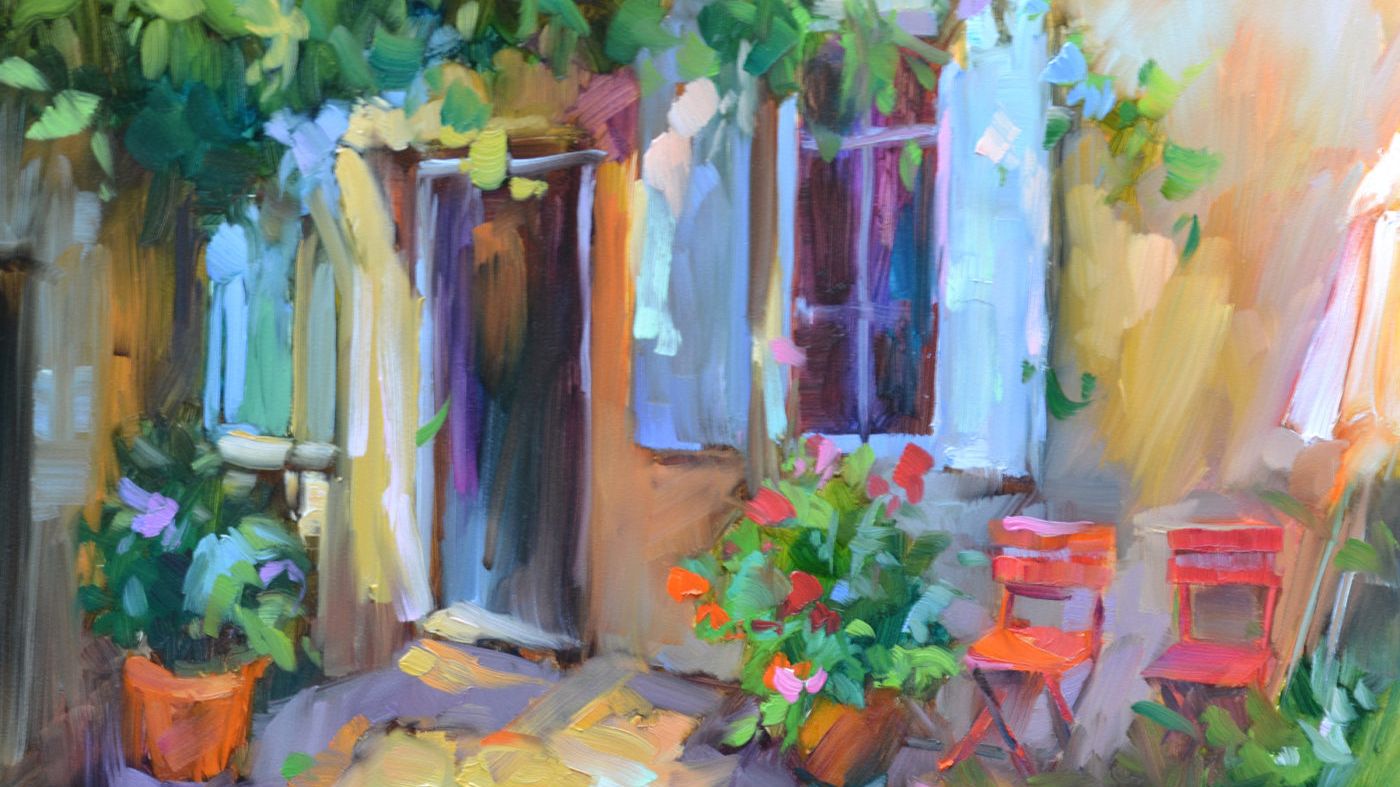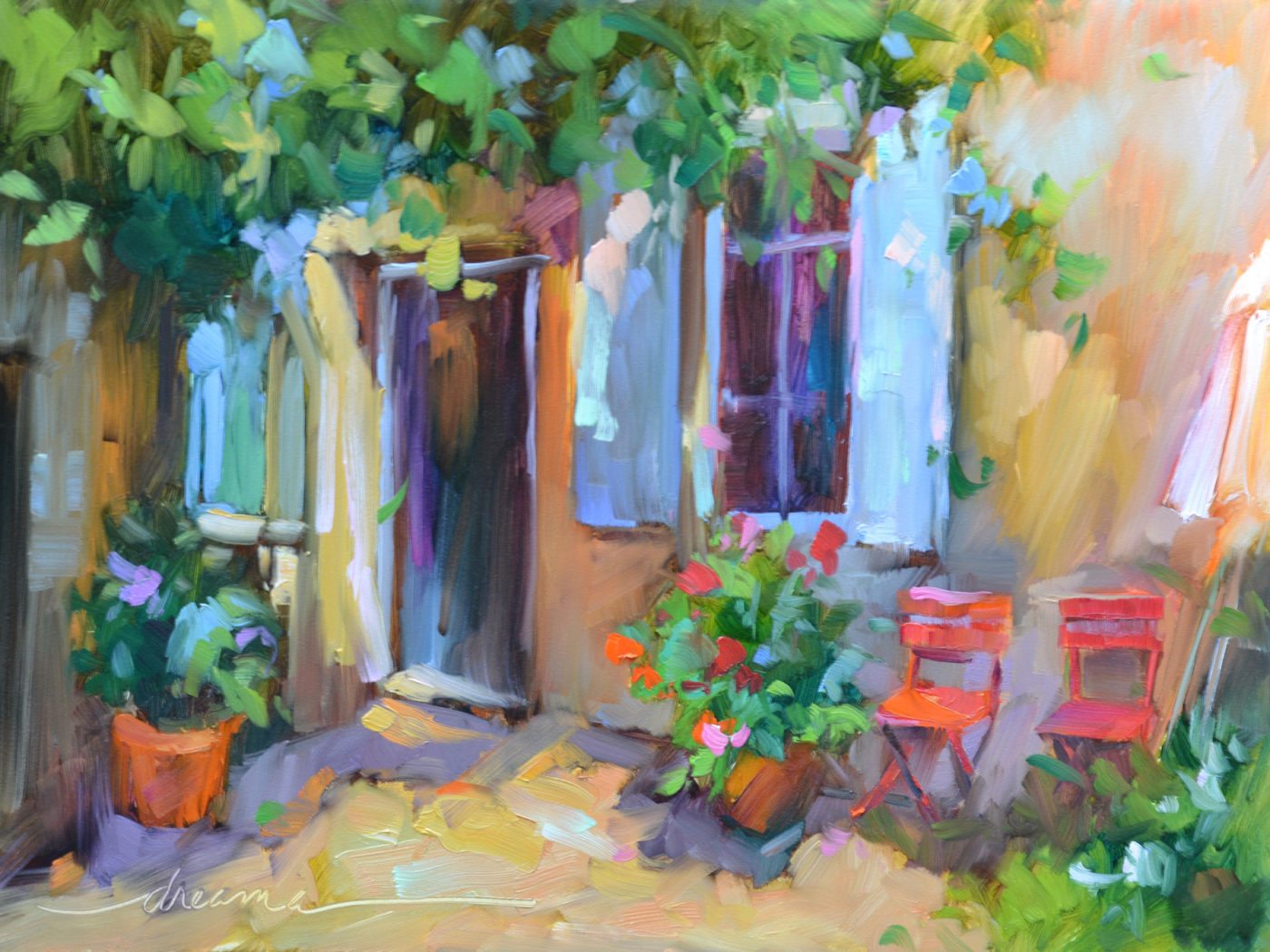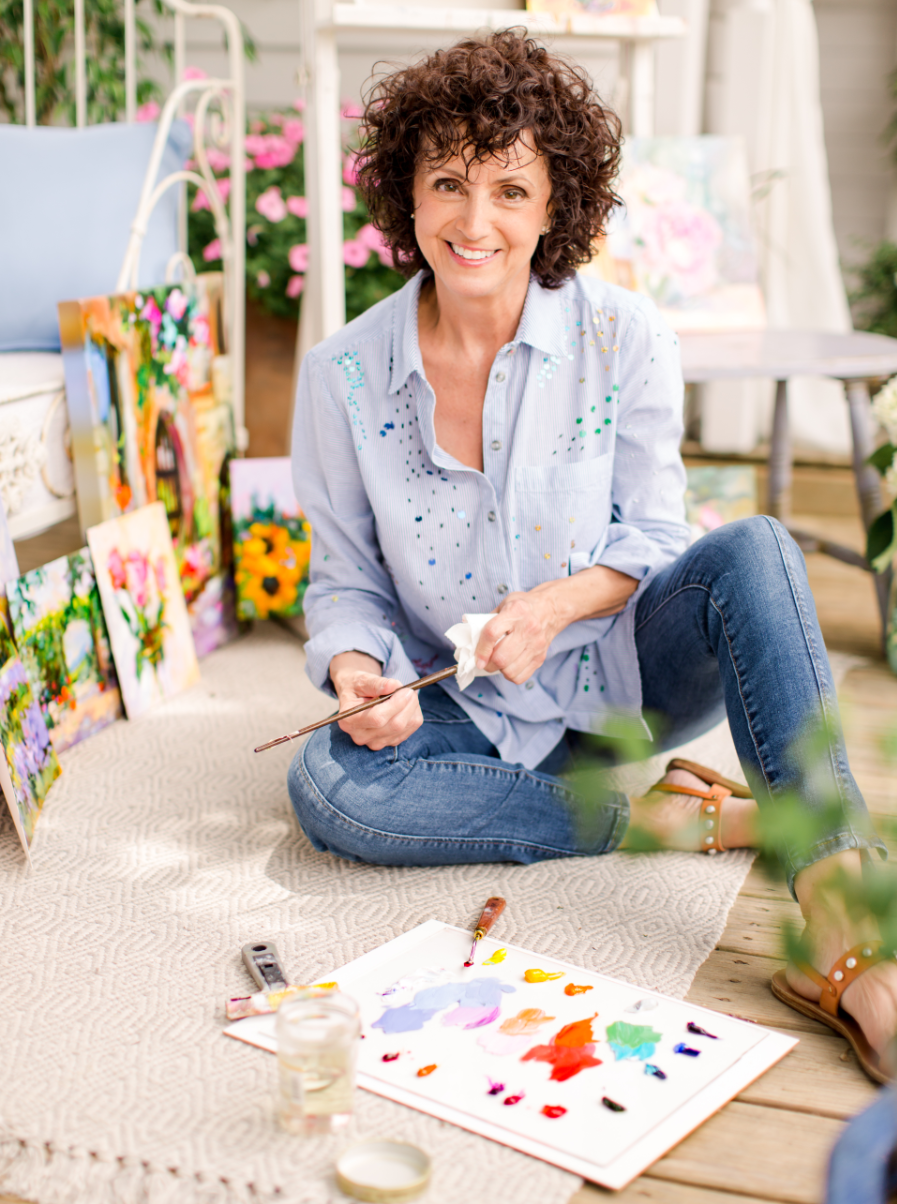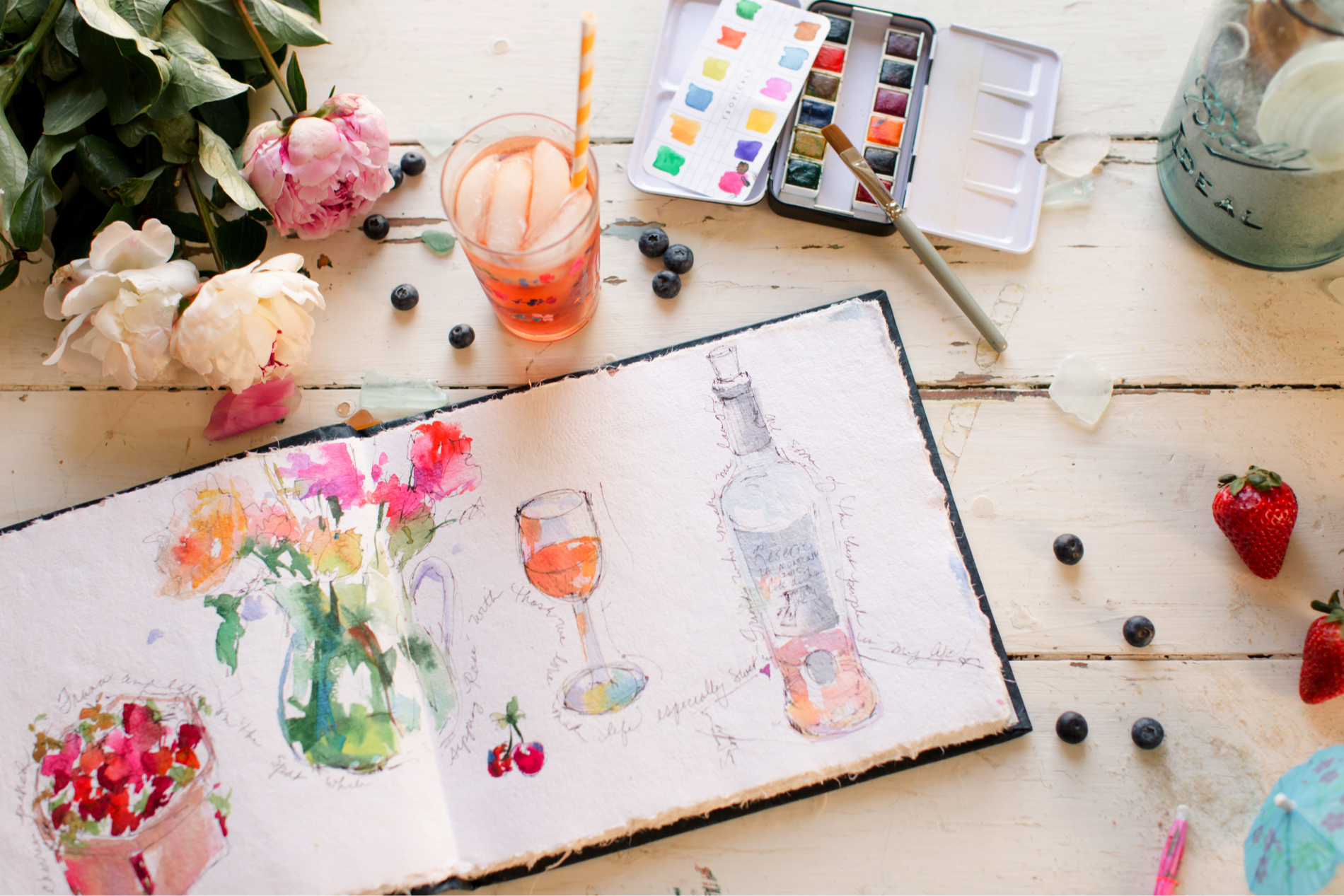
When is a Painting Finished? Part One
Talk about the $64 question! For painters, that question tops the list of things most often wondered about. How to know when a particular stroke is THE last one and the painting is perfect! When do you stop, drop the brush and walk away?
Let me introduce you to the "just one more thing" painting approach. Stop laughing...I know I am not the only one to have fallen victim to this belief.
You know it well. Belief that one perfect stroke will carry us to the magical pinnacle of the perfect painting. Only problem is the stroke doesn't become the last stroke but more akin to the opening of Pandora's box (and even if you don't remember the details, you know that particular story didn't end so well).
We are not the first to have pondered the big question:
"Art is never finished, only abandoned." ~Leonardo da Vinci
"A painting is never finished, it simply stops in interesting places." ~Paul Gardner
"A painting is finished when the artist says it is finished." ~Rembrandt
Obviously, opinions on this vary widely.
At the risk of giving you one more thing to think about, I've decided to place my 2 cents worth squarely on the table.
And I should probably tell you straight up that it doesn't involve a methodical approach of technical calculations.
Remember who you're talking to.
I was prompted by a comment that someone had left on a FB post of mine, "I like that you know when to stop on a painting". Which got me to thinking about how do I decide when a painting is done. Known for my looser, painterly pieces you should know I have not always painted that way. Leaving mystery and unfinished business as part of a completed work is more "me" than how I used to paint.
Before I get to the "how I decide when to stop on a painting" part, I need to take you back to an earlier epiphany. We will call it....
Letting go of the idea of perfection.
Most of what has gotten me in trouble on a painting is trying to get it "just right". Which is code for "perfect". Not liking the idea of being a perfectionist, I have other words to justify my "need" to do one more thing. The obvious problem with this is that perfection doesn't exist in a painting.
Not really.
And especially not how we define it.
Which means that the harder one works at it, the more elusive it becomes.
You might be surprised why. It seems simple. We've narrowed down the problem. It's that one little thing. We'll just tweak it and then we're done.
Easy peasy, right?
Except when the tweak is made we find that a new problem has now reared its head. Just a wee one. So we "fix" it. Except, except...now there's something else that seems a little off. And on and on it goes until we realize we "lost" the painting about 200 strokes ago and now feel the urge to trash said painting.
We all need a T-shirt that says "The Perfect Painting: Been there, ruined that"
There actually is a reason for this for this widespread phenomenon. (I know...isn't that the best news you've heard in awhile??) We aren't crazy after all! It really does keep needing 'just one more thing' and the reason is...
Everything in the painting is connected. One thing can't be tweaked or adjusted without it impacting the rest of the painting.
Our paintings are just like a room full of people, each time someone new enters or exits the room, the group shifts a bit. Conversations change, new topics are broached.
When one stroke is added, one value adjusted, one little thing changed..well, you get the picture. It's akin to nailing Jello to a tree. The desire for perfection, like the carrot on the end of the stick, has no happy ending when it comes to painting. Each decision is merely a transition to the next decision. Which brings us back to the question of when is a painting finished. Obviously not "when everything is perfect". (* per Garnder's quote above, paintings aren't ever really finished, they simply stop in interesting places.)
Obviously, there are things we see that need adjusting or correcting in a painting as it nears completion but the conversation here is specifically targeted on stopping on a painting while it still feels fresh, still retains the vibrancy and liveliness that you had in at the beginning.
Perfection isn’t the answer for ‘when is the painting finished’. Each change made in a painting creates a new painting with new choices so perfection is a target that is ever moving and changing.
Sometimes in our searching for answers though one question leads to an even deeper one.
This one definitely does…
Why are we so bent on getting it perfect?
The conversation in my next post!
Meanwhile, I'd love to hear your thoughts on this :-)
P.S. You can now read the second and third part in this series by clicking here and here.

- “Playful Light of France”
12 x 9in oil on museum quality panel
NFS
Subscribe to Get Letters From Dreama
Never miss an update! When a new blog post is published, we'll send it directly to your email.
We keep your information private, and you can unsubscribe at any time.





